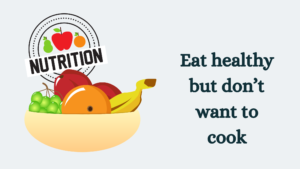
When it comes to nutrition, it’s always a good idea to consult with a professional. An experienced nutritionist can provide personalized advice and help you optimize your diet for better health. If you’re meeting with a nutritionist for the first time, here are 13 questions you might want to ask to get the most out of your appointment.
1: I don’t eat [food or food group]. How can I make sure I get the nutrients from that food in other ways?
This is a common concern for people who follow restrictive diets or have food allergies. It’s important to make sure you’re getting all the nutrients your body needs, even if you’re avoiding certain foods. Ask the nutritionist for advice on alternative sources of nutrients, such as supplements, fortified foods, or other whole foods that can provide similar nutrients. For example, if you don’t eat dairy, you might want to know what plant-based sources of calcium you can add to your diet.
2: Are there certain foods or drinks that might interact with my medications?
If you’re taking prescription or over-the-counter medications, it’s important to be aware of any potential interactions with the foods and beverages you consume. Ask the nutritionist if there are any specific foods or drinks you should avoid or limit while taking your medications. For example, grapefruit juice can interact with certain medications and make them less effective.
3: How can I eat healthy if I don’t cook?

Many people struggle with healthy eating because they don’t have the time or skills to cook. Ask the nutritionist for tips on how to make healthy food choices when eating out or relying on pre-packaged meals. They might recommend specific types of restaurants or menu items that are healthier than others, or suggest convenient and healthy snack options that don’t require any cooking.
4: I’ve just been diagnosed with [medical condition]. Should I adjust my diet?
Certain medical conditions, such as diabetes, high blood pressure, or celiac disease, can require specific dietary changes to manage symptoms or improve health outcomes. Ask the nutritionist if there are any specific dietary changes you should make based on your diagnosis. They might recommend specific foods to include or avoid, as well as meal planning strategies to help you meet your nutritional needs.
5: Why do I crave [sugar, salt, coffee, spicy food] so much, and how can I control these cravings?
Cravings can be a major obstacle to healthy eating, especially if they lead to overconsumption of certain foods or drinks. Ask the nutritionist why you might be experiencing specific cravings and what strategies you can use to manage them. They might recommend alternative foods or drinks that can satisfy your cravings without derailing your healthy eating plan.
6: Is it okay for me to snack, or should I have only three balanced meals a day?
Snacking can be a contentious topic in nutrition, with some experts advocating for frequent small meals and others recommending three balanced meals per day. Ask the nutritionist what they think about snacking and whether it’s okay for you based on your individual needs and goals. They might recommend specific snack options that are healthy and satisfying, or suggest strategies for managing hunger and cravings between meals.
7: Do you think I should consult with a therapist?

Sometimes, issues with food and eating habits can be related to underlying emotional or psychological factors. Ask the nutritionist if they think you would benefit from working with a therapist or counselor to address any emotional issues that may be affecting your eating habits. They might recommend specific types of therapy or counseling that can be helpful.
8: What can I do to improve symptoms like indigestion, bloating, or gas?
Digestive issues can be a major source of discomfort and can also impact nutrient absorption and overall health. Ask the nutritionist for strategies to improve digestive symptoms such as incorporating more fiber, avoiding trigger foods, or trying specific supplements or probiotics. They might also recommend lifestyle changes such as managing stress, staying hydrated, and getting enough exercise.
9: What are some easy meals I can make when I’m short on time?
Time constraints can make it challenging to prepare healthy meals, especially if you’re always on the go. Ask the nutritionist for suggestions on quick and easy meal ideas that can be prepared in advance or on the fly. They might recommend simple recipes that use minimal ingredients, suggest meal planning strategies to save time, or provide ideas for healthy convenience foods that can be easily assembled into a meal.
10: What are some healthy snack ideas or items I should keep in my pantry?
Snacks are an important part of any healthy eating plan, providing an opportunity to refuel and satisfy hunger between meals. Ask the nutritionist for recommendations on healthy snack options that can be kept on hand in your pantry or desk drawer. They might suggest options like nuts, seeds, fruit, or whole grain crackers, or recommend specific brands or products that are both healthy and tasty.
11: What are some tips for eating healthy on a budget?

Eating healthy can sometimes be perceived as expensive, but it doesn’t have to be. Ask the nutritionist for tips on how to eat well on a budget, such as shopping for seasonal produce, buying in bulk, or choosing cheaper sources of protein like beans or eggs. They might also recommend strategies for meal planning and batch cooking to save time and money.
12: How can I incorporate more vegetables into my diet?
Vegetables are a crucial component of a healthy eating plan, providing essential vitamins, minerals, and fiber. If you struggle to eat enough vegetables, ask the nutritionist for tips on how to incorporate them into your diet in a way that’s both enjoyable and sustainable. They might suggest ideas like adding veggies to smoothies, soups, or omelets, or experimenting with new cooking methods or flavor combinations.
13: How can I make sure I’m getting enough protein on a vegetarian or vegan diet?
Protein is an important nutrient for maintaining muscle mass, promoting satiety, and supporting overall health. If you follow a vegetarian or vegan diet, it can be challenging to get enough protein from plant-based sources alone. Ask the nutritionist for tips on how to meet your protein needs without relying on meat, such as incorporating beans, legumes, tofu, or tempeh into your diet. They might also recommend specific protein supplements or powders that can be used to supplement your diet if needed.
Conclusion
Asking a nutritionist specific and tailored questions during an appointment is essential in understanding and managing your dietary needs, habits and health conditions. These 12 questions are just a starting point to facilitate a productive conversation with your nutritionist. Remember, nutrition is not a one-size-fits-all approach and working with a professional can help you optimize your diet for better health.
Thanks for reading!